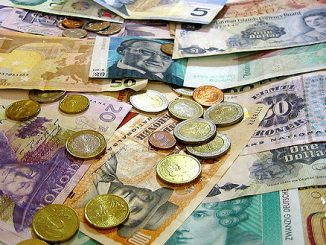For political reasons, the International Monetary Fund seems prepared to make China’s yuan an official reserve currency. This is an unreservedly stupid idea.
Bloomberg reported last week that the IMF is likely to approve the currency’s inclusion in the Special Drawing Rights, or SDR, a designation that gives IMF member countries who hold it the right to use any currencies in the basket to meet balance-of-payment needs. If approved as expected, the yuan will join a basket of currencies that currently includes the U.S. dollar, the euro, the yen and the pound.
Though the IMF rejected the yuan for SDR inclusion in 2010, several key members including the U.S. and the United Kingdom have indicated they are prepared to support the yuan’s inclusion this time around. The use of the yuan internationally has also increased since then, which may help it inch closer to the IMF’s benchmarks for inclusion. But even considering these factors, making the yuan an official reserve currency is remains a very bad idea.
Money still cannot be moved freely into or out of China. As recently as this summer, the administration in Beijing shut down large swaths of its stock trading rather than face the reality of how investors valued its companies. Credit is grossly misallocated in favor of state-owned companies rather than the private sector. Many basic economic statistics, such the rate of economic growth, are questionable; others are treated as state secrets – sometimes after the fact. Foreigners who ask too many questions can be deported; citizens can be made to disappear for extended periods.
And this is where the world’s central banks should be encouraged to place their foreign exchange reserves? This currency is one that should be included in the IMF’s basket of Special Drawing Rights?
It is as asinine as it sounds. But because of China’s political and economic clout, nobody in a position of authority on the topic wants to say so. Meg Lundsager, who served as the U.S. representative on the IMF’s executive board from 2007 to 2014, told Bloomberg that she was not aware of any major opposition to adding China’s currency to the SDR basket. “If there were countries which had real problems with it, they would have been raising their concerns,” she said. In reality, it is probably more likely that countries with concerns have weighed them against the consequences of rocking the boat, and decided opposition was not worth the potential blowback.
For China, having the yuan added to the SDR basket is most of all a matter of prestige, a way of saying to its citizens that, despite its slowing economy (and the hushed-up indicators of outright recession in certain sectors), it has truly arrived as a global economic power. That is true enough by certain measures. If China’s economy is the second largest globally, the theory seems to go, its currency should assume a place of equal prominence in international trade. From China’s point of view, having foreign central banks hold its currency in reserve would also create another market for Chinese government debt, a fact that could become important if the country’s overstretched credit system finally snaps.
Adding the yuan to the SDR basket will not make sense until China truly opens its economy to something like the degree of the other countries in that basket, namely the central banks of U.S., UK, Japan and the European Union via its European Central Bank. But it appears that the IMF does not think maintaining high standards is worth the fight it would trigger with Beijing.
Central bankers will likely remain wary of the yuan until China achieves something approaching world-class transparency and convertibility. As Jerry Webman of OppenheimerFunds observed in Forbes, global reserve managers will continue to prefer currencies – like the dollar and the euro – that have deep and liquid sovereign bond markets.
We are not remotely close to China opening its economy to the degree that the governments behind other SDR basket currencies have, but the yuan may well get its status elevated anyway. Any central bank that moves a large chunk of its reserves into that currency deserves whatever it ultimately gets.
- Bulenox: Get 45% to 91% OFF ... Use Discount Code: UNO
- Risk Our Money Not Yours | Get 50% to 90% OFF ... Use Discount Code: MMBVBKSM
Disclaimer: This page contains affiliate links. If you choose to make a purchase after clicking a link, we may receive a commission at no additional cost to you. Thank you for your support!




Leave a Reply